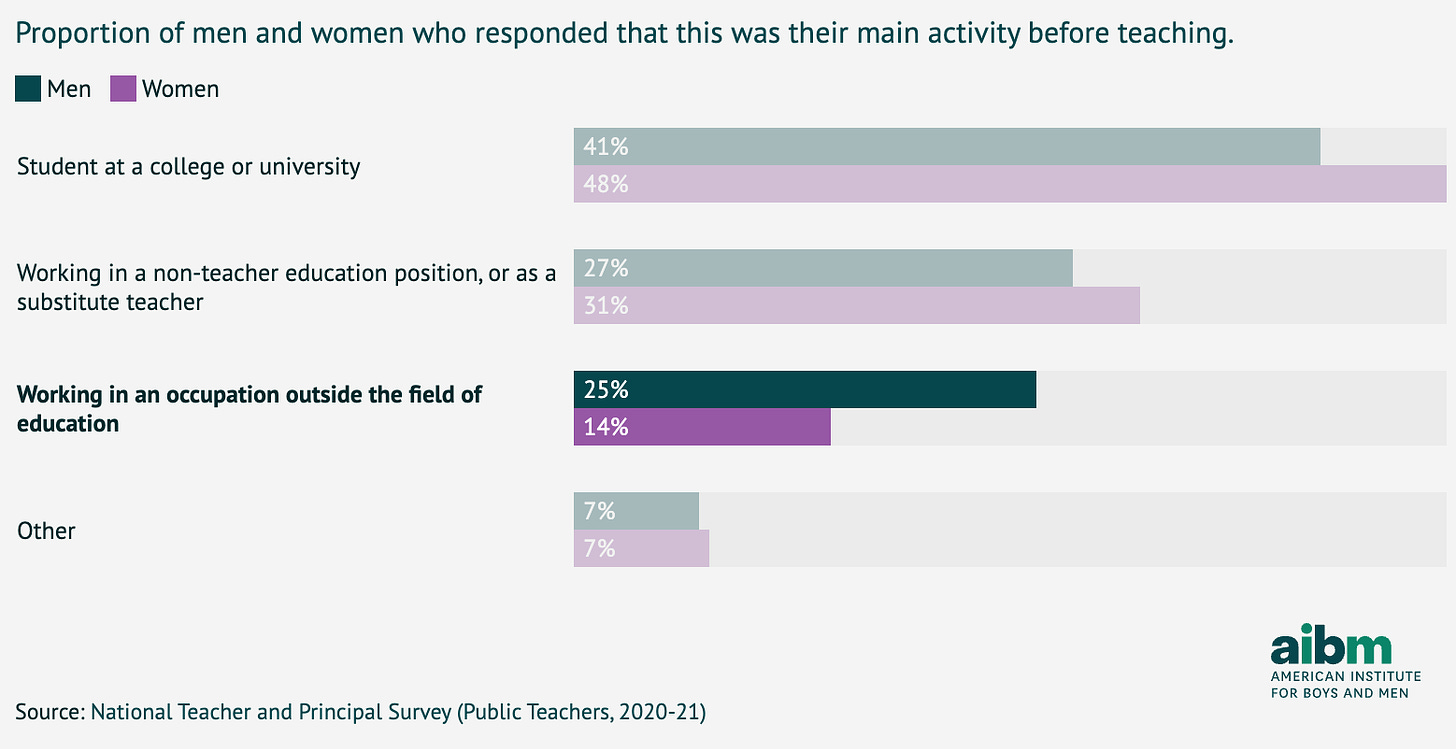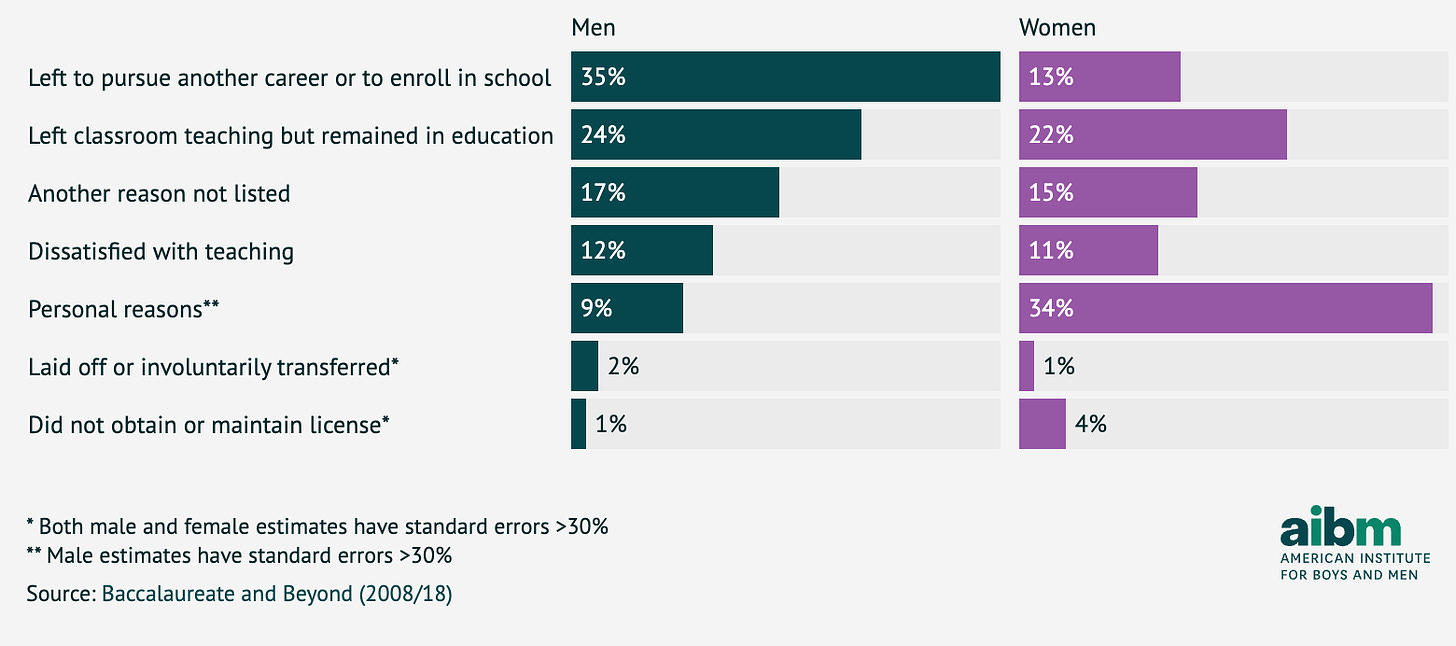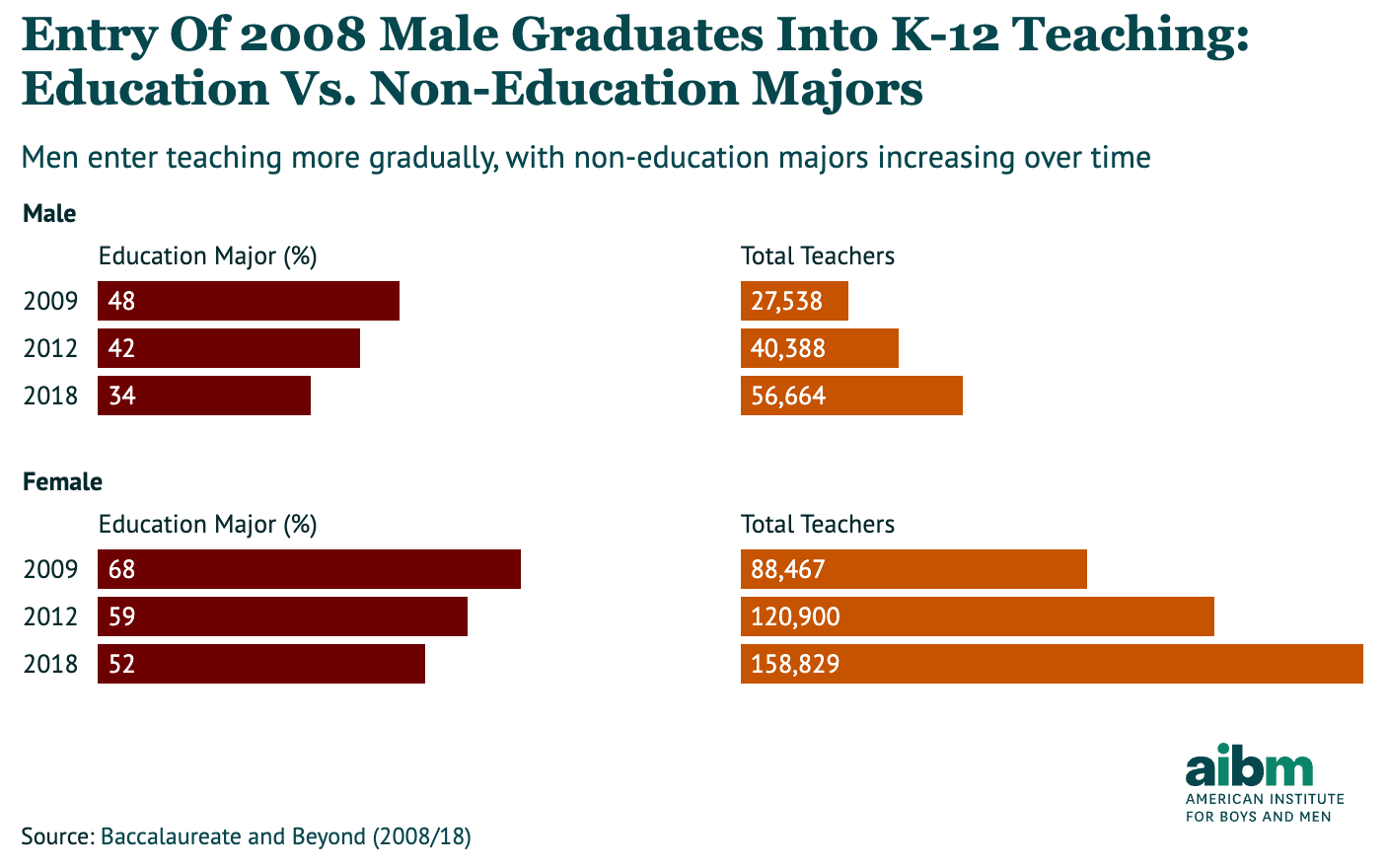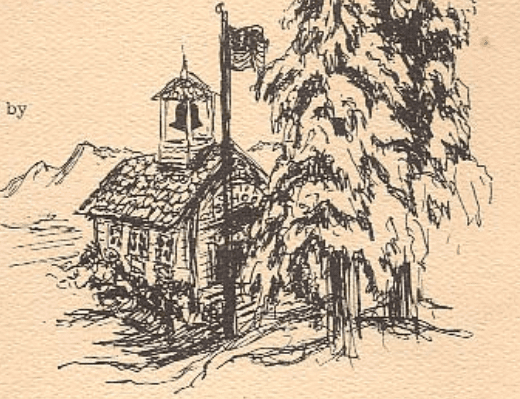Men are more likely to switch into teaching. So let’s make that easier
I’ve written a lot about the decline in the share of male teachers. My hope is that policymakers at every level, from school to federal government, will start to take this issue more seriously
Male teachers rock. And I’m not only saying that because my son is one of them. They are not just educators, breaking down gender stereotypes about education. They are role models, coaches, mentors. Just all-round awesome dudes. So to all the male teachers out there, thank you!
Over at the American Institute for Boys and Men, Ben Smith and I have just put out a new research brief on male teachers, “7 Key Facts About Male Teachers”. Our focus is especially on the pipeline into and out of the profession. I’d encourage you to read it, but a couple of standouts for me were as follows:
The big drop is in secondary school
It’s well known that there are few men in elementary schools. But the biggest drop has been at the secondary level ie. in middle and high schools:

As Ben and I write:
Overall, the share of male teachers in public schools (both elementary and secondary) has declined from 30% in 1987 to 23% in 2022. In elementary schools (pre-kindergarten to 6th grade) the male share has always been low, and has dropped further, from 14% to 11%. In secondary schools (7th to 12th grade) the share is higher but has fallen more significantly, from 48% to 36%.
Men become teachers later
Men are less likely than women to go straight into teaching from college, and more likely to enter teaching from another profession: 1 in 4 male teachers come from another profession:

Men leave teaching for career reasons
But men are also more likely to leave teaching for another career. At the other end of the pipeline, 35% of men leaving teaching say this is to pursue another career or get more education, compared to just 13% of women:

Fewer teachers have an BA in Education
One chart we didn’t end up using, shown below, illustrates the changing overall pipeline into teaching. The share of teachers with an education undergraduate degree is falling quite sharply, for both men and women:

There’s still a big gender gap: half of female teachers have an education BA, compared to one in three male teachers. But the decline is striking for both.
Modernize the teacher pipeline
My main takeaway is that there is an urgent need to modernize the teacher pipeline, and that doing so will likely help arrest the decline in male teachers. This means
- more opportunities to enter teaching without an education degree, without any sacrifice in quality, eg through Teacher Residency programs
- better pay, including for better performance, to attract and retain teachers
- higher rewards for teachers leading extra-curricular activities, including coaches
- the opportunity to earn more without having to leave the classroom for school leadership, perhaps along the lines of North Carolina’s “super-teacher” program
I’d love to see more states and school districts setting out a clear policy goal to increase the share of male teachers in our schools. It looks to me like much of what needs to happen for the profession in any case could well make it more attractive to men.






